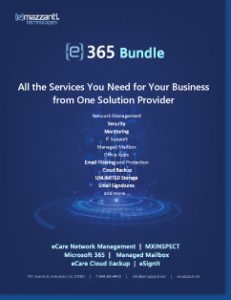It’s important to know potential customers like the back of your hand. So well, in fact, that you can finish their sentences before they finish typing them into their Internet browser’s search bar.
This is the idea behind digital keyword advertising. It’s a marketing method in which companies bid to place web content high in the search results when certain words and phrases are typed in. Used properly, it can get your content is seen by an audience it will truly resonate with—but it is an investment, and you want to ensure a worthwhile return.
To make that happen and get the most out of keyword marketing, here are three easy tips to follow.
1. Research Who is Searching
You can’t speak to your audience if you don’t know who they are or what they need. Luckily, there are a wealth of tools to help you do just that—from creating a forum on your site where visitors can interact and share information, to emailing a short and easy-to-complete questionnaire to customers with their receipt of purchase. And when you’ve gathered enough demographic information, you can get more in-depth, considering the average customer’s age, income, interests, and more.
Knowing all this, it’s a lot easier to put yourself in their mindset and think about what they might search. Make a list of five to ten products or services that you provide, then brainstorm words and terms that prospects may use to find them, based on their unique needs. If you’ve done your due diligence, this becomes less of a guessing game and more likely to deliver great results.
2. Establish a Goal
The foundation of every successful digital keyword advertising strategy is a key point indicator (KPI). This provides you with measurement criteria to help track the success of your keyword strategy.
Most companies’ digital keyword advertising objectives fall under three main categories. These are awareness (building an audience for your product or service), engagement (driving interaction with your product or service), and conversion (turning a prospect into a customer). Knowing your objectives, you can align your KPI to your strategy.
For example, if you’re interested in raising brand awareness, you may want to focus on tracking mentions of the brand on social media. If engagement is your goal, you can look at end user actions, like clicks and page visits. Tracking conversion rates? Compare the number of prospects to customers.
If you like what you see, then you know your strategy is working. And if the results could be better, then it’s back to the lab—as you’ll see in the next tip!
3. Employ AIDAS as Your Campaign Aid
Advertising may seem like a creative industry, but there’s a science to it. Industry leaders swear by the AIDA formula: “attract the Attention of your audience, raise customer Interest, convince customers that they Desire your product/service, lead customers towards taking Action (include a call-to-action) and [provide] Satisfaction if they end-up choosing your website.”
AIDAS can guide your digital marketing strategy and help your content rise to the top of search engine results pages (SERPs), so keep the acronym in mind as you develop your keywords and content.
When you follow these three simple steps, digital keyword advertising can really pay off. And with the digital marketing experts from eMazzanti at your side, you can reach more customers than ever. To find out more about how we can help your digital marketing campaigns take off, contact us today.













